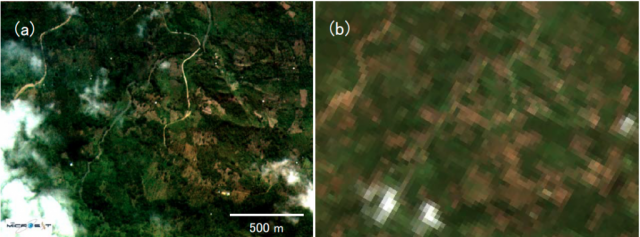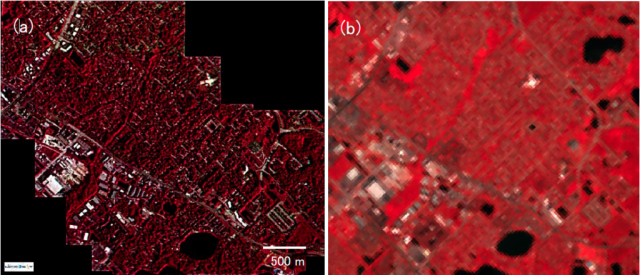PHL microsatellite Diwata-1's ‘world-best’ images
The Philippines' first microsatellite Diwata-1 has drawn praise from researchers for providing "world-best" images.
Hokkaido University on Wednesday published pictures sent in by Diwata-1, comparing it with images from the large-scale Landsat 8 satellite.
"The High Precision Telescope (HPT) installed in the Philippine’s DIWATA-1 microsatellite jointly developed by Hokkaido University and other institutions has successfully captured images with a ground resolution of about 3 meters—a world-best for a 50 kg-class microsatellite," the statement read.

The Philippine Council for Industry, Energy, and Emerging Technology Research and Development (PCIEERD) noted how the clearer pictures could help the country.
"With a clearer photo from Diwata 1’s HPT camera, it will be easier to see which areas are affected by natural and even man-made disasters such as floods and fires," it said.
Photos from Diwata-1 are taken with "four imaging devices with different magnifications, including the HPT and a fish-lens camera" and the quality is significantly better than the Operational Land Imager (OLI) of Landsat 8.
Hokkaido University also commended the images created using near-infrared-band data, showing a very defined outline of a suburban area in Florida.
This graphic compares two false-color images of a suburban area in Florida, United States. Image (a) was taken by the HPT installed in DIWATA-1, while image (b) was taken by Landsat 8’s OLI. To emphasize areas of vegetation, near-infrared-band data was used to create the image. (Photo and caption from Hokkaido University)

This not only made it "possible to shoot high-resolution images with high frequency, but also establishes a powerful technique for microsatellites to capture spectral images at several tens of bands (wavelengths) or higher."
Diwata-1 is a joint project of Hokkaido University, Tohoku University, the Department of Science and Technology (DOST), and the University of the Philippines. It was deployed from the International Space Station on April 27. —Aya Tantiangco/JST, GMA News





